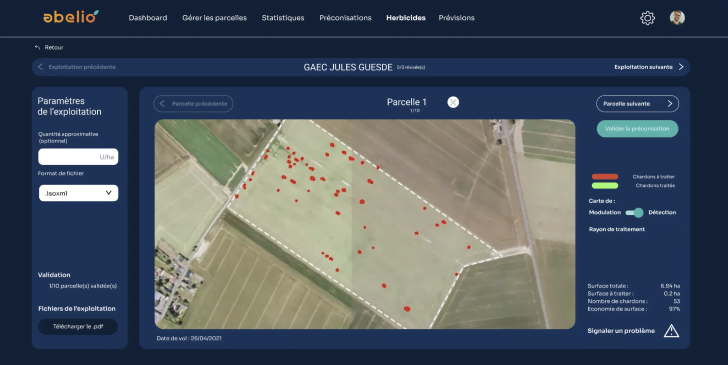Gårdskapital, in collaboration with eAgronom, offers a unique opportunity for Swedish farmers to enhance their revenue streams while adopting environmentally sound agricultural methods. This initiative empowers farmers to transition towards sustainable farming practices, primarily through the generation and sale of carbon credits. By focusing on key practices for carbon storage, Gårdskapital aims to create a positive impact on both the environment and the agricultural economy.
The program is designed to support farmers in implementing practices that increase soil carbon storage, which is then converted into carbon credits for sale. This not only provides a financial incentive but also contributes to the overall sustainability of the farming operation. With a minimum commitment of five years, Gårdskapital ensures a long-term focus on environmental stewardship and carbon credit generation.
Through partnerships with investors, Gårdskapital facilitates the financial support needed for farmers to adopt these sustainable practices. This innovative financing solution complements traditional bank loans, providing farmers with the resources they need to transition to a more sustainable and profitable future.
Key Features
Gårdskapital’s carbon credit program is a key feature, allowing farmers to monetize the environmental benefits of their sustainable farming practices. By implementing practices that increase soil carbon storage, farmers can generate carbon credits that can be sold on the market, providing an additional revenue stream. This program is designed to reward farmers for their efforts in promoting environmental sustainability.
Financial support is another crucial aspect of Gårdskapital’s offering. The program connects farmers with investors, providing the financial backing needed to transition to sustainable agriculture. This support complements traditional bank loans, offering farmers an alternative source of funding for implementing sustainable practices. This financial support is critical for enabling farmers to adopt new technologies and practices that can improve their environmental performance.
The partnership with eAgronom provides farmers with access to expertise and tools for implementing effective carbon storage practices. EAgronom’s platform helps farmers monitor and manage their carbon storage efforts, ensuring that they are maximizing their carbon credit potential. This partnership is essential for providing farmers with the technical support they need to succeed in the carbon credit market.
Sustainable farming practices, such as reduced tillage, cover cropping, and diversified crop rotations, are at the heart of Gårdskapital’s approach. These practices not only increase soil carbon storage but also improve soil health, reduce erosion, and enhance biodiversity. By promoting these practices, Gårdskapital helps farmers create more sustainable and resilient farming operations.
Technical Specifications
| Specification | Value |
|---|---|
| Minimum Farm Size | 80 hectares |
| Minimum Commitment | 5 years |
| Average Profit Rate | 9.35% |
| Investment Focus | Sustainable Agriculture |
| Carbon Storage Practices | Reduced Tillage, Cover Cropping, Crop Rotation |
| Partnership | eAgronom |
| Loan Purposes | Climate Adaptation, Increased Local Food Production, Regenerative Farming |
Use Cases & Applications
- Transitioning to Reduced Tillage: A farmer with 100 hectares of arable land uses Gårdskapital’s financing to invest in no-till equipment. This reduces soil disturbance, maintains organic matter, and increases carbon sequestration, generating carbon credits for sale.
- Implementing Cover Cropping: A farmer integrates cover crops like rye and clover into their crop rotation with Gårdskapital’s support. This prevents soil erosion, improves soil structure, and enhances biodiversity, further boosting carbon credit potential.
- Diversifying Crop Rotations: A farmer adopts a diversified crop rotation including legumes like sweet lupin with Gårdskapital’s financial assistance. This fixes nitrogen, improves soil fertility, and reduces the need for synthetic fertilizers, contributing to a more sustainable farming system.
- Climate Adaptation: A farmer utilizes a loan from Gårdskapital to implement climate adaptation strategies, such as water-efficient irrigation systems, to mitigate the impacts of climate change on their farm.
Strengths & Weaknesses
| Strengths ✅ | Weaknesses ⚠️ |
|---|---|
| Facilitates access to capital for sustainable farming practices | Requires a minimum farm size of 80 hectares, limiting accessibility for smaller farms |
| Provides a carbon credit program, offering an additional revenue stream | Relies on the carbon credit market, which can be volatile and subject to regulatory changes |
| Partners with eAgronom for technical expertise and support | Requires a minimum five-year commitment, which may not be suitable for all farmers |
| Promotes environmentally sound agricultural methods | Specific pricing details are not publicly available, making it difficult to assess the overall cost-effectiveness |
| Supports climate adaptation and increased local food production | Success depends on the effective implementation of sustainable practices and accurate monitoring of carbon sequestration |
Benefits for Farmers
Gårdskapital offers several key benefits for farmers. By adopting sustainable farming practices, farmers can improve soil health, reduce erosion, and enhance biodiversity, leading to increased yields and reduced input costs. The carbon credit program provides an additional revenue stream, rewarding farmers for their efforts in promoting environmental sustainability. Furthermore, the program supports climate adaptation, helping farmers mitigate the impacts of climate change on their operations. Overall, Gårdskapital contributes to the long-term sustainability and profitability of farming operations.
Integration & Compatibility
Gårdskapital integrates into existing farm operations by complementing traditional bank loans with innovative financing solutions. The program also integrates with eAgronom’s platform for monitoring and managing carbon storage practices, providing farmers with the tools they need to track their progress and maximize their carbon credit potential. This integration ensures that farmers can seamlessly adopt sustainable practices without disrupting their existing operations.
Frequently Asked Questions
| Question | Answer |
|---|---|
| How does this product work? | Gårdskapital connects farmers with investors to implement sustainable farming practices that increase soil carbon storage. These practices are then converted into carbon credits which can be sold, providing an additional revenue stream for the farmer. The program partners with eAgronom to provide tools and expertise in implementing these practices. |
| What is the typical ROI? | While specific ROI varies, one source mentions an average profit rate of 9.35% on total investments. The ROI is tied to the successful implementation of sustainable practices and the generation of carbon credits, as well as increased yields and reduced input costs. |
| What setup is required? | The setup involves assessing the farm’s eligibility (minimum 80 hectares), committing to a minimum five-year program, and implementing sustainable farming practices such as reduced tillage, cover cropping, and crop rotation. Gårdskapital, in partnership with eAgronom, provides the necessary tools and support for this implementation. |
| What maintenance is needed? | Maintenance involves consistently adhering to the agreed-upon sustainable farming practices, monitoring soil carbon levels, and managing crop rotations. Regular communication with Gårdskapital and eAgronom is crucial for ongoing support and optimization. |
| Is training required to use this? | Yes, training and guidance are provided to farmers to ensure they understand and can effectively implement the sustainable farming practices. This support is offered through the partnership with eAgronom, leveraging their expertise in sustainable agriculture. |
| What systems does it integrate with? | Gårdskapital primarily integrates with existing farm operations by complementing traditional bank loans with innovative financing solutions. The program also integrates with eAgronom’s platform for monitoring and managing carbon storage practices. |
Pricing & Availability
Specific pricing details for Gårdskapital’s investments are not publicly available. The cost can be affected by factors such as farm size, the specific sustainable practices implemented, and the duration of the investment. To learn more about investment options and availability, contact us via the Make inquiry button on this page.
Support & Training
Gårdskapital, in partnership with eAgronom, provides comprehensive support and training to farmers. This includes guidance on implementing sustainable farming practices, monitoring carbon storage levels, and managing crop rotations. Farmers also have access to eAgronom’s platform, which provides tools and resources for optimizing their sustainable farming efforts. This support ensures that farmers have the knowledge and resources they need to succeed in the carbon credit market.



